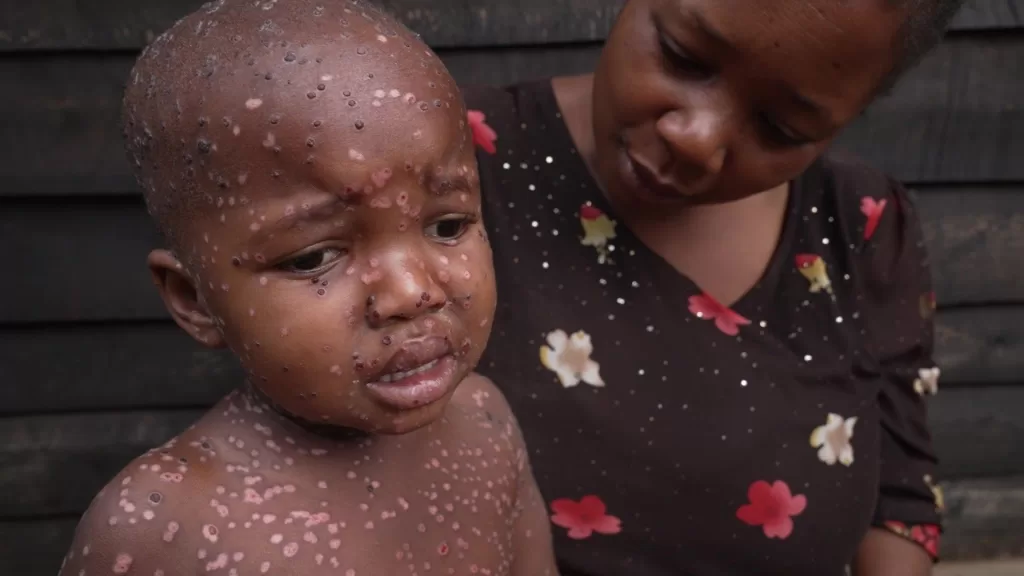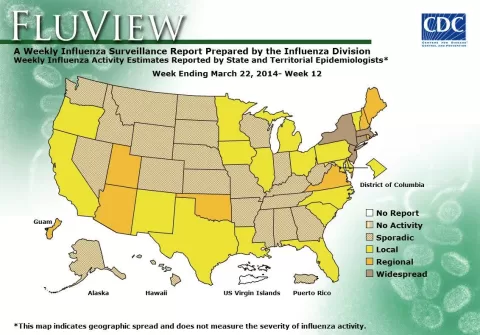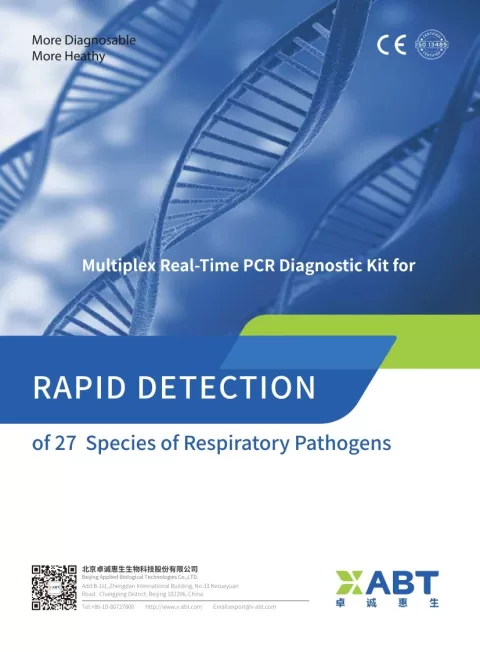The ongoing investigation into the outbreak in the Democratic Republic of the Congo (DR Congo) is garnering significant attention from health organizations, particularly the World Health Organization (WHO) expert team DRC, which has stepped in to assist local investigators. This outbreak, which remains largely undiagnosed, is centered in the Kwango province health area and has prompted urgent support due to its alarming symptoms, including fever and respiratory issues. Since late October, local authorities have reported a fluctuating number of cases, with 394 infections and 30 fatalities currently acknowledged. To facilitate a thorough health outbreak investigation, samples have been sent to laboratories in nearby Kigali for analysis, while the WHO response in Congo focuses on enhancing surveillance and risk communication efforts. With the situation evolving rapidly, the collective expertise of the WHO and local health officials is crucial in understanding and controlling this undiagnosed illness in DR Congo.
In light of the recent health crisis affecting the Democratic Republic of the Congo, a focused inquiry has emerged to unravel the complexities of a mysterious outbreak. This situation involves significant collaboration between health authorities and international health experts as they work to diagnose and respond to a troubling series of undetermined illnesses. The WHO’s mobilization of a specialized team highlights the urgency of ensuring effective health measures in the Kwango province, where the outbreak originated. By analyzing symptoms and gathering data, the investigation aims to provide vital insights into the transmission and causes of this health challenge. With heightened awareness and action, health officials are determined to safeguard both local and global communities from the potential spread of this enigmatic illness.
WHO Expert Team Deploys to Support DRC Outbreak Investigation
The World Health Organization (WHO) has mobilized an expert team to the Democratic Republic of the Congo (DRC) to bolster efforts in investigating a concerning outbreak of undiagnosed illness. This incident first came to light in late October and has affected the remote Kwango province in the Panzi Health Zone. The swift response aims to provide crucial support to local health authorities who are facing a challenging situation with limited resources and testing facilities. By deploying this specialized team, WHO intends to enhance the investigation’s effectiveness and improve public health response strategies in the region.
Equipped with essential medicines and diagnostic tools, the expert team includes professionals such as epidemiologists and infection control specialists. Their objective is to ascertain the outbreak’s origins and its transmission dynamics, which is vital for controlling further spread and safeguarding community health. WHO’s commitment highlights its ongoing mission to respond rapidly to health emergencies and to collaborate with national health ministry efforts. As they await results from laboratory testing in neighboring Kwilu province, the expert team is instrumental in strategizing effective interventions for affected populations.
The Role of WHO in Health Outbreak Investigations
The role of the World Health Organization is pivotal during health outbreak investigations, especially in regions like the Democratic Republic of the Congo facing challenges with undiagnosed illnesses. The organization not only aids in identifying and diagnosing diseases but also supports the mobilization of resources, technical expertise, and strategic frameworks for response. In this specific case, the DRC health ministry’s reports on fluctuating case numbers underscore the urgency for coordinated efforts to understand the nature of the outbreak, implement containment measures, and communicate effectively with the public.
In addition, WHO’s response in Congo involves collaboration with local health workers who have been entrenched in their communities for years. By strengthening their capabilities through training and resource provision, WHO ensures that critical information flows adequately between local and international health bodies. This harmonized approach is essential in mitigating the impact of unexplained illnesses and ensures that communities receive timely healthcare interventions that could save lives and prevent further outbreaks.
Investigating Undiagnosed Illnesses: Challenges and Solutions
Investigating undiagnosed illnesses presents significant challenges, particularly in remote areas like Kwango province, where infrastructure and access to healthcare facilities may be limited. The complexities of gathering accurate data and managing the logistics of sample collection underscore the need for a well-coordinated health outbreak investigation. Moreover, the nature of an undiagnosed illness can exacerbate public fear and hinder community cooperation, complicating efforts to trace the infection’s spread.
Solutions to address these challenges include enhancing communication strategies and increasing support for local health teams. The WHO expert team is tasked with not only investigating the outbreak but also empowering local personnel with necessary training and tools to handle similar cases in the future. By establishing robust surveillance systems, health authorities can improve early detection and response to potential outbreaks, mitigating risks associated with undiagnosed illnesses effectively.
Symptoms and Impact of the DRC Outbreak
The symptoms reported in the current DRC outbreak have raised alarm among health authorities, showcasing the need for immediate action to mitigate potential risks. Common symptoms include fever, cough, breathing difficulties, headache, and anemia, which could indicate a respiratory illness or other serious diseases. The fluctuating number of reported cases and fatalities emphasizes the importance of timely diagnosis and treatment. Each case carries implications not just for affected individuals but also for public health systems, which may become overwhelmed if rapid action is not taken.
Understanding the impact of this undiagnosed illness extends beyond immediate health implications; it also affects the socioeconomic stability of the region. When outbreaks occur, they can disrupt local economies, limit access to healthcare, and place strains on families and communities already in precarious positions. The WHO’s involvement is crucial in addressing both the medical and systemic ramifications of the outbreak, ensuring that communities receive the support they need during this critical time.
Kwango Province: A Focus Area for Health Authorities
Kwango province is currently a focal point for health authorities due to the recent outbreak of an undiagnosed illness. Its remote location and inadequate medical infrastructure present unique challenges, making it imperative for health agencies like the WHO to prioritize interventions in the area. Local health workers have been engaged since late November, focusing on enhancing surveillance efforts and improving the community’s responsiveness to health alerts. Their firsthand knowledge of the region is vital in navigating the complexities of the outbreak.
Moreover, addressing health issues in Kwango province also requires a multifaceted approach. In addition to investigating the current outbreak, health authorities must consider factors such as education, access to healthcare services, and infrastructure development to build resilience against future outbreaks. By fostering partnerships between local healthcare providers and international organizations, there can be a united front against health crises, leading to lasting improvements in public health outcomes for the residents of Kwango province.
Travelers’ Safety Amid DRC Outbreak Concerns
The ongoing outbreak in the DRC has prompted health organizations beyond Africa to heighten their vigilance concerning travelers from affected regions. For instance, Hong Kong’s Centre for Health Protection has increased screenings for travelers arriving from key hubs where individuals from the DRC are likely to originate. This proactive measure aims to detect any symptoms indicative of the undiagnosed illness and initiate prompt medical evaluation to prevent transmission across borders.
Additionally, health authorities in other countries are now more aware of the potential risks and are enhancing monitoring protocols for incoming travelers. Enhancements in traveler screening not only protect public health within their borders but also reflect the interconnected nature of global health security. As we navigate through this outbreak, understanding its potential reach emphasizes the importance of international cooperation and information sharing among countries.
Preventive Measures Against Future Health Outbreaks
Given the emergence of the current outbreak in the DRC, it is critical to focus on preventive measures to mitigate the occurrence of similar health crises in the future. Strengthening local healthcare systems through infrastructure improvements and training healthcare providers will create a robust framework capable of responding to emerging health threats. The commitment from WHO and local authorities to ensure access to diagnostic tests and treatments is paramount in building this resilience.
Equally important is fostering a culture of awareness and education within communities about health risks and preventive practices. Public engagement initiatives can empower local populations to recognize symptoms early and seek medical assistance. Collaboration between governments, non-governmental organizations, and health agencies can promote sustained efforts in disease prevention, creating healthier communities less susceptible to outbreaks.
Community Response to the DRC Outbreak
The community’s response to the DRC outbreak is pivotal in controlling the spread of the undiagnosed illness. Local residents play a crucial role in identifying symptoms and reporting any health concerns to authorities. Building trust between communities and health workers enhances engagement and ensures that vital health information circulates promptly. This grassroots involvement is essential for effective monitoring during an outbreak, as communities are often the first to notice changes in health trends.
In addition, community leaders can facilitate communication regarding preventive measures and health education. By empowering locals with knowledge, they can foster a culture of vigilance against potential health threats. WHO emphasizes the significance of involving communities in health initiatives as a strategy to cultivate resilience and adaptability in the face of outbreaks, ultimately leading to improved health outcomes.
The Importance of Rapid Response in Health Outbreaks
The current outbreak in the DRC underscores the necessity of a rapid response during health emergencies. Swift action by organizations such as the WHO can significantly influence the trajectory of an outbreak. Rapid response not only entails mobilizing resources but also involves effective coordination among local health authorities, international bodies, and community stakeholders. Identifying the root cause of illnesses early on is crucial to implementing timely interventions that control the spread of infections.
Moreover, a rapid response fosters public confidence in health systems. When communities observe an efficient and transparent response, it encourages them to participate actively in health initiatives and seek timely medical care. Ensuring that resources, including medicines and diagnostic tools, reach the frontline swiftly can make a difference in managing outbreaks effectively, emphasizing the critical nature of the WHO’s role in times of health crises.
Frequently Asked Questions
What is the purpose of the WHO expert team in the DR Congo outbreak investigation?
The WHO expert team has been deployed to assist in the DR Congo outbreak investigation, specifically to support local health authorities in Kwango province. Their primary objectives are to identify the cause of the undiagnosed illness, enhance disease surveillance, and ensure that appropriate medical responses are implemented.
How many cases are reported in the undiagnosed illness outbreak in DR Congo?
As of the latest reports, there have been 394 cases linked to the undiagnosed illness outbreak in DR Congo, with 30 fatalities. The WHO is closely monitoring this ongoing health outbreak investigation to provide necessary support and resources.
What symptoms are associated with the DR Congo outbreak investigation?
The symptoms associated with the undiagnosed illness in the DR Congo outbreak investigation include fever, headache, cough, breathing difficulties, and anemia. Understanding these symptoms is crucial for health authorities in their efforts to identify and manage cases effectively.
What support is being provided to Kwango province during the health outbreak investigation?
During the health outbreak investigation in Kwango province, the WHO expert team is providing essential medicines, test kits, and sample collection tools. This support is part of a collaborative effort with the national response team to manage the ongoing outbreak effectively.
What measures are being taken to monitor travelers during the DR Congo outbreak investigation?
In response to the DR Congo outbreak investigation, health authorities in regions like Hong Kong have increased screening measures for travelers from areas with reported cases. This includes enhanced monitoring of symptoms that align with the undiagnosed illness, ensuring timely identification and response.
What are the next steps in the DR Congo outbreak investigation?
The next steps in the DR Congo outbreak investigation involve analyzing samples sent to laboratories, enhancing local surveillance, and implementing risk communication strategies. The WHO aims to quickly ascertain the cause of this undiagnosed illness to establish an effective health response.
How is the WHO responding to the health outbreak investigation in DR Congo?
The WHO is responding to the health outbreak investigation in DR Congo by deploying an expert team, collaborating with local health authorities, providing medical supplies, and working to understand the transmission dynamics of the illness affecting Kwango province.
| Key Points | Details |
|---|---|
| WHO Deployment | WHO has dispatched an expert team to assist in the DRC’s outbreak investigation. |
| Location of Outbreak | The outbreak is in Kwango province, Panzi Health Zone, DR Congo. |
| Reported Cases and Deaths | 394 cases reported, with 30 fatalities as of the latest update. |
| Symptoms | Symptoms include fever, headache, cough, breathing difficulties, and anemia. |
| Laboratory Testing | Samples sent to a lab in Kigali for testing, results expected within 48 hours. |
| Expert Team Composition | Includes epidemiologists, clinicians, and laboratory technicians among others, |
| Health Monitoring Near Travel Hubs | Travelers from DRC are undergoing increased health screening in locations including Hong Kong. |
Summary
The DR Congo outbreak investigation is a crucial effort led by the WHO to identify and manage an undiagnosed illness affecting the population in Kwango province. The expert team deployed aims to enhance local health response capacities, provide essential medical supplies, and ensure prompt diagnosis to safeguard public health. Continuous monitoring and collaboration with international health authorities are vital to prevent the spread of this mysterious outbreak.
The content provided on this blog (e.g., symptom descriptions, health tips, or general advice) is for informational purposes only and is not a substitute for professional medical advice, diagnosis, or treatment. Always seek the guidance of your physician or other qualified healthcare provider with any questions you may have regarding a medical condition. Never disregard professional medical advice or delay seeking it because of something you have read on this website. If you believe you may have a medical emergency, call your doctor or emergency services immediately. Reliance on any information provided by this blog is solely at your own risk.








